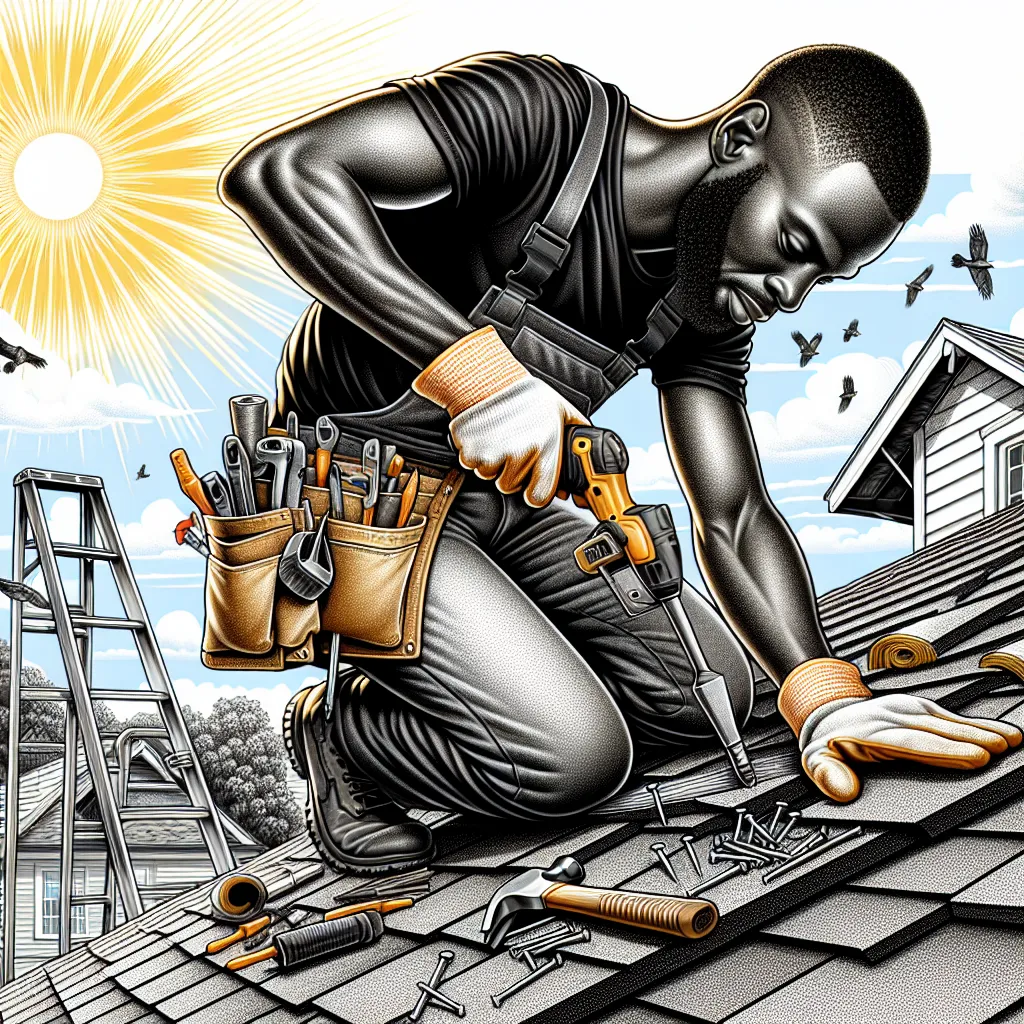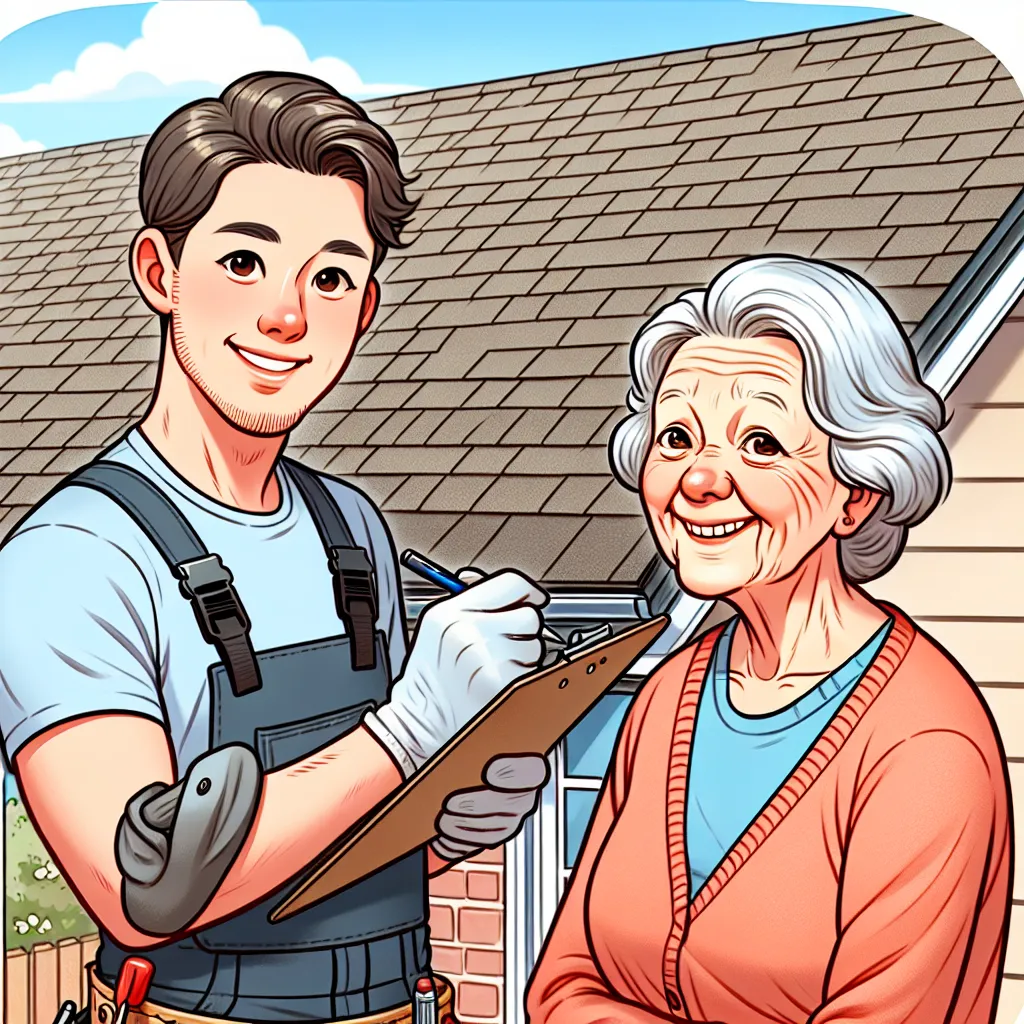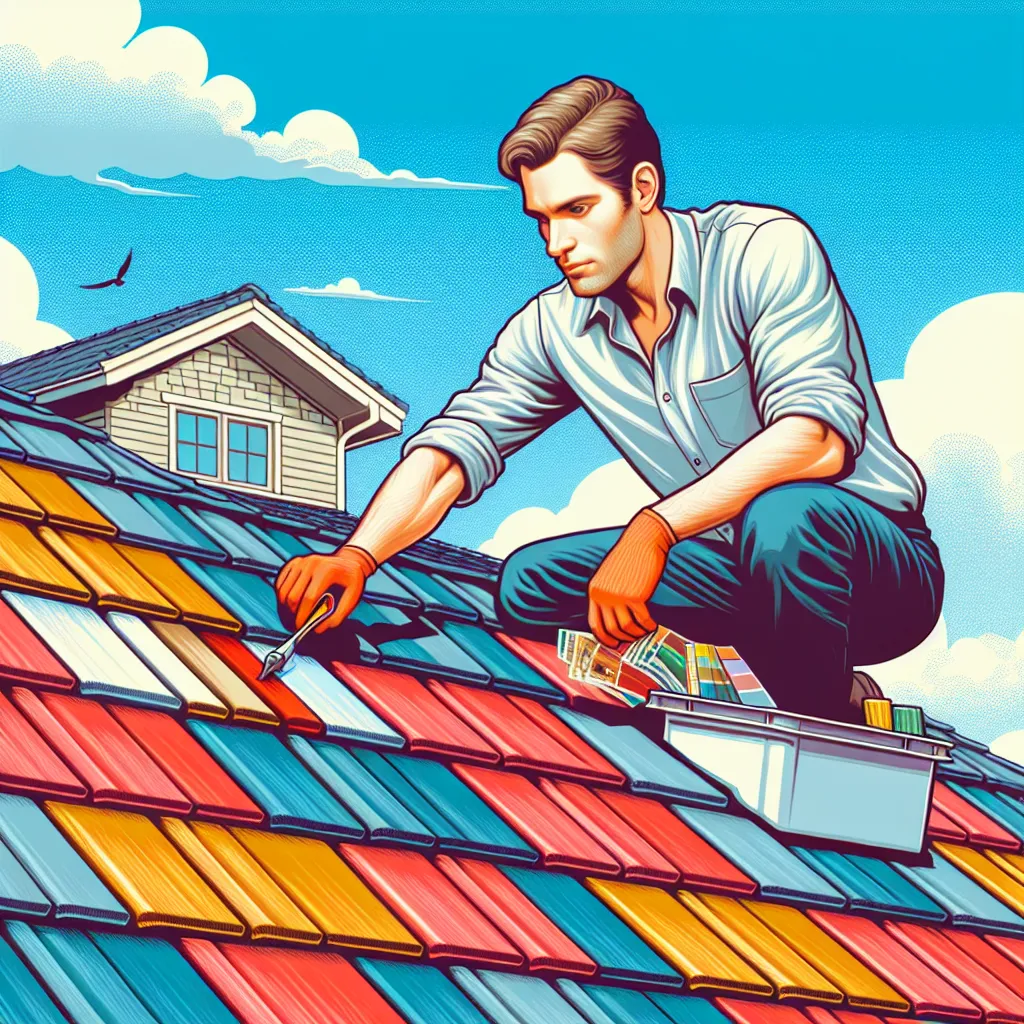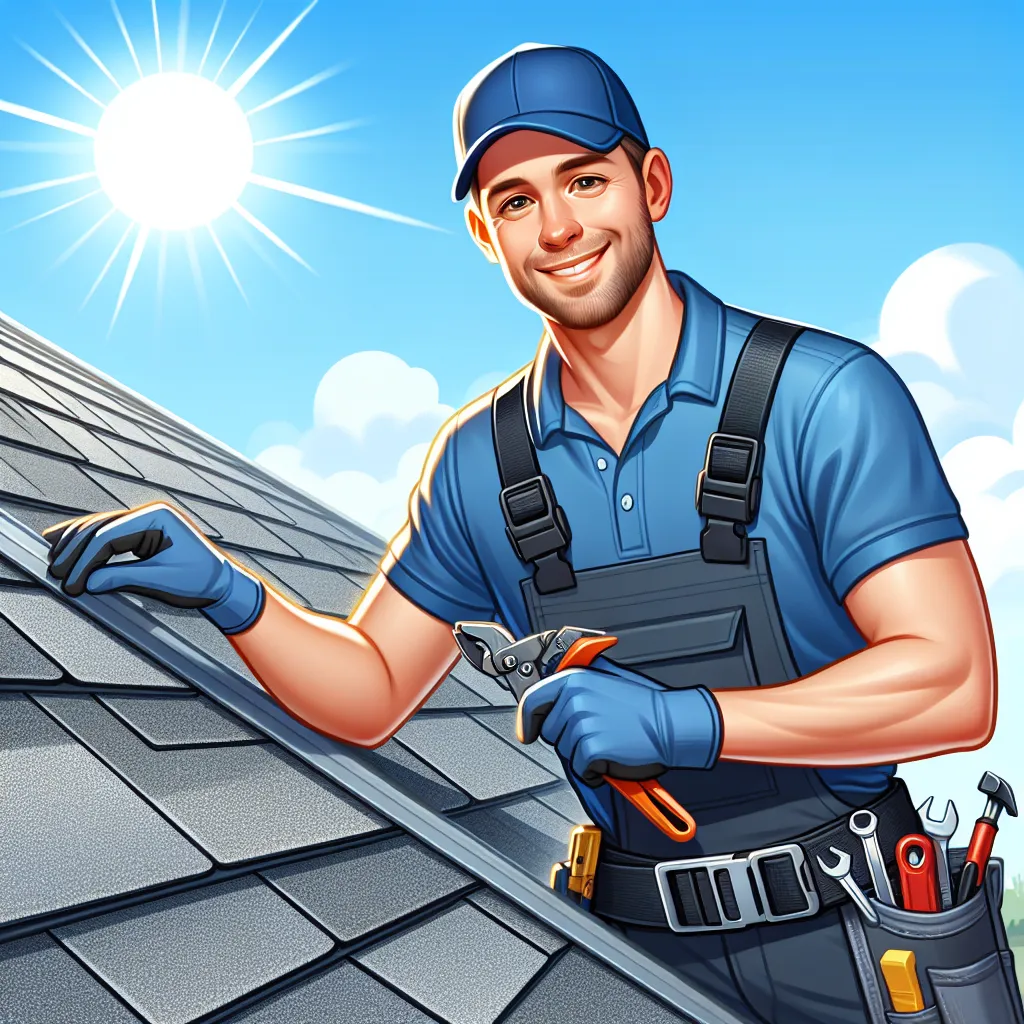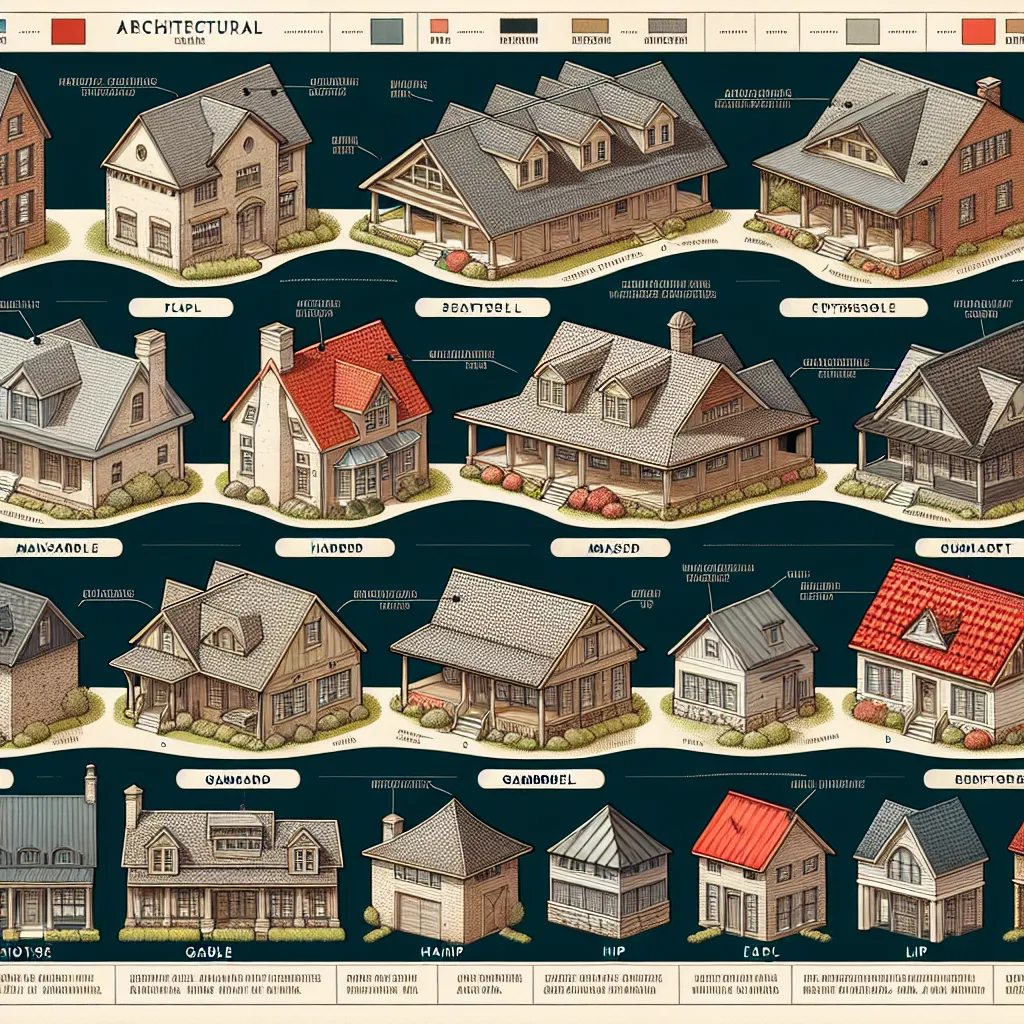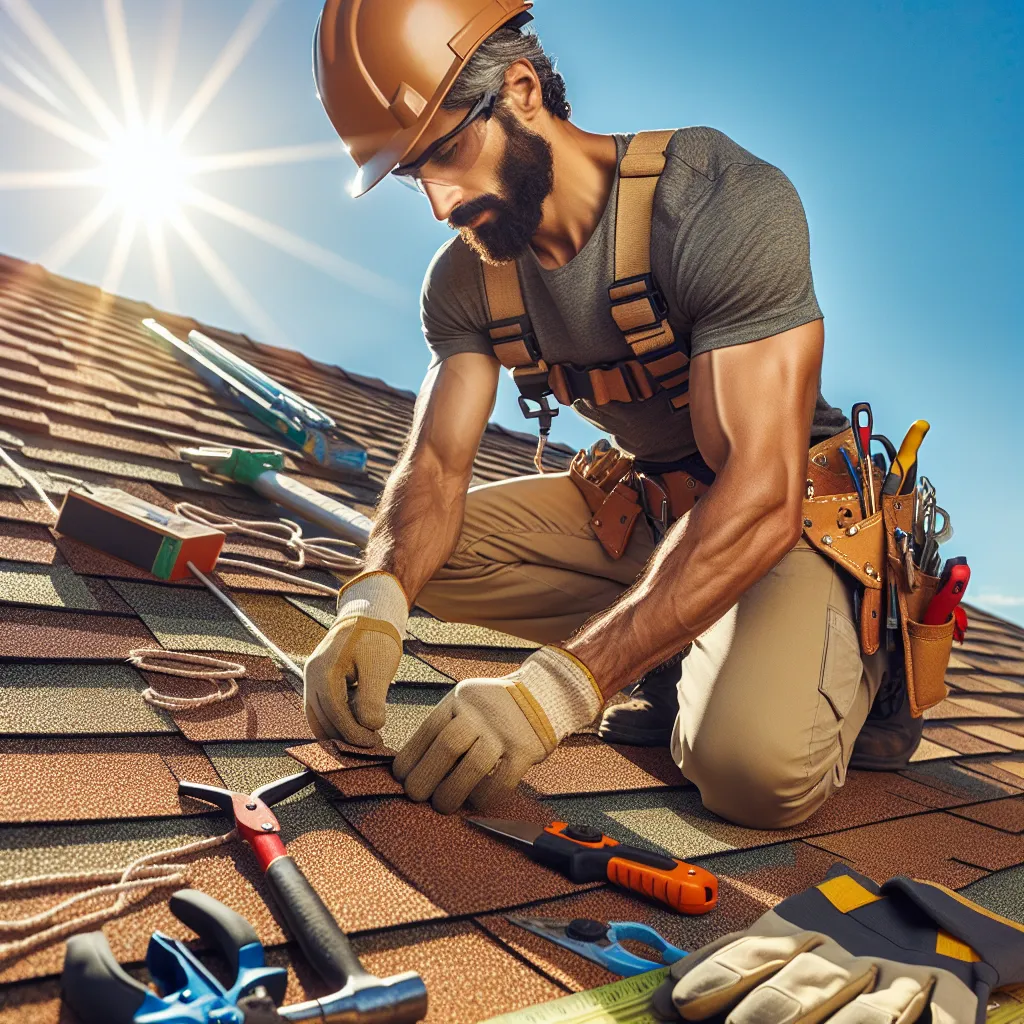Looking for a roofing handyman near me can feel like searching for a needle in a haystack. We all want someone reliable—no one enjoys climbing a ladder for a leaky roof or dealing with endless repairs. The truth? Not every handyman is created equal, especially when it comes to your roof. Let’s cut through the confusion and talk about what really matters when hiring help for roofing and handyman tasks.
What Does a Roofing Handyman Near Me Actually Do?
A roofing handyman near me isn’t just someone with a hammer and a truck. We’re talking about skilled professionals who handle everything from patching leaks to fixing gutters and repairing storm damage. Their work can cover:
- Roof Repair: Shingle fixes, leak patches, storm damage, and emergency repairs.
- Handyman Tasks: Gutter cleaning, minor carpentry, pressure washing, caulking, and even furniture assembly.
Why does this matter? Because roofs protect everything we own. A bad fix now can spell disaster (and big bills) later.
Why Should We Care About a Roofing Handyman Near Me?
We get it—DIY videos make home repairs look easy. But roofing is different. It’s risky, technical, and mistakes can cost a fortune. A local roofing handyman knows:
- Local codes and weather: What works in Texas sun may flop in Florida rain.
- Community standards: They stake their reputation on every job.
- Speed and trust: Quick response in emergencies—no waiting for an out-of-town crew.
Key Benefits of Hiring a Roofing Handyman Near Me
Let’s break down the real perks:
| Benefit | Why It Matters |
|---|---|
| Fast Local Response | Quick fixes after storms or sudden leaks |
| Versatile Skills | Handles both roofing and common household repairs |
| Transparent Pricing | Quotes by the job or hour, no surprise fees |
| Personalized Service | Familiarity with local homes and customer needs |
| Safety and Liability | Licensed and insured, so you’re protected if anything goes wrong |
The Flip Side: Drawbacks to Watch For
It’s not all sunshine and rainbows. Here’s what to keep an eye on:
- Limited scope: Some handymen can’t tackle big roof replacements.
- Quality varies: Skill levels and tools differ wildly.
- Availability: The best ones book up fast, especially after big storms.
Practical Use Cases for a Roofing Handyman Near Me
Wondering when to call? Here’s when a local expert makes life easier:
- After a hailstorm: Quick shingle repairs before leaks spread.
- Buying or selling a home: Roof inspections and minor fixes for peace of mind.
- Seasonal maintenance: Gutter cleaning, roof checkups, and pressure washing.
- Emergency leaks: Fast patchwork to prevent water damage.
How To Choose the Right Roofing Handyman Near Me
Don’t just hire the first name you see. Here’s how we size up our options:
1. Check Credentials
- License and Insurance: Non-negotiable for safety.
- Background Checks: Reputable handymen are open about their team.
2. Dig Into Reviews
- Look for stories about timeliness, quality, and communication—not just star ratings.
3. Ask About Experience
- Have they worked on your kind of roof? Asphalt, tile, metal—all need different skills.
4. Get Clear Pricing
- Quotes should be detailed—no vague “ballpark” numbers.
5. Look for Guarantees
- Warranties and satisfaction promises separate pros from fly-by-nights.
Decision-Making Table
| Criteria | What to Look For | Red Flags |
|---|---|---|
| Licensing | State/city registration | Can’t show paperwork |
| Insurance | General liability/cert. | “Trust me, I’m covered” |
| Reviews | Local, recent, detailed | Generic, copied, missing |
| Pricing | Written, itemized | Verbal, vague, changing |
| Warranty | Written, clear | “We’ll see what happens” |
Real-World Examples: Roofing Handyman Near Me in Action
1. The After-Storm Hero
A couple in San Antonio woke to water stains on the bedroom ceiling after a nasty thunderstorm. Their roofing handyman near me arrived the same day, patched torn shingles, and cleared out clogged gutters. They dodged a huge repair bill and kept their home dry.
2. The Move-In Makeover
A first-time homeowner in Clearwater, Florida, found loose tiles and leaky gutters during their pre-move inspection. A quick call to a trusted local handyman led to fast, affordable repairs—plus some bonus caulking in the bathroom. Moving day was stress-free (well, almost).
3. The Rental Rescue
A landlord in Boerne needed a last-minute fix before new tenants arrived. Their go-to roofing handyman near me replaced missing shingles, repainted trim, and even fixed a wobbly fence. The property looked sharp, and the tenants moved in on schedule.
Most-Asked Questions About Roofing Handyman Near Me
How much does a roofing handyman near me charge?
Typical rates range from $50 to $150 per hour, but small jobs often have a flat fee. Always ask for a detailed estimate first.
Can a roofing handyman near me replace my entire roof?
Most handymen handle repairs, not full replacements. For large jobs, you’ll want a specialist with roofing crew experience.
What types of roofs can a roofing handyman near me fix?
Most are comfortable with asphalt shingles, tile, and metal. Always confirm they have experience with your specific roof type.
Is it safe to hire a roofing handyman near me for emergency repairs?
Yes, as long as they’re insured and licensed. Emergencies are actually where local handymen shine.
How soon can a roofing handyman near me start work?
Some offer same-day service for urgent repairs, but busy seasons (like after storms) can mean longer waits.
Are warranties offered by roofing handymen near me?
Many provide short-term warranties on labor. Ask for specifics in writing.
What should I ask before hiring a roofing handyman near me?
Check their license, insurance, recent references, and ask for a written quote. Don’t be afraid to ask about materials and timelines.
Getting the right roofing handyman near me isn’t just about convenience—it’s about peace of mind. We all deserve a roof that keeps us safe, dry, and worry-free. So next time your ceiling drips or your gutters sag, skip the guesswork and find a pro who treats your home like their own. After all, there’s no place like home (especially when the roof doesn’t leek).
Roofing Handyman Near Me
Looking for a roofing handyman near me? Finding a reliable local expert is essential for quick, quality repairs.
Why Choose a Local Roofing Handyman?
- Faster Response Time: They can arrive promptly after your call.
- In-depth Local Knowledge: They understand weather challenges and local building codes.
- Personalized Service: They build trust through community reputation.
Key Factors to Consider
| Feature | Why It Matters |
|---|---|
| License & Insurance | Protects you from liability and ensures quality work. |
| Reviews & Reputation | Reflects their reliability and craftsmanship. |
| Cost & Warranties | Clear quotes and guarantees for peace of mind. |
Why We Recommend
Your Local Roofing Experts — trusted, licensed, and ready to handle your urgent roofing needs with honesty and skill.
Don’t wait for small issues to become big problems. Contact us today for a free estimate and experience top-tier service right in your neighborhood!
Frequently Asked Questions About Roofing Handyman Near Me
How much does a roofing handyman near me typically charge?
Rates usually range from $50 to $150 per hour, but many small jobs have flat fees. Always ask for a detailed estimate beforehand.
Can a roofing handyman near me handle a full roof replacement?
Most handymen focus on repairs and small fixes. Full roof replacements are better handled by specialized roofing contractors with larger crews.
What types of roofing issues can a roofing handyman near me fix?
They can repair asphalt shingles, tile, and metal roofs, including patching leaks, storm damage, and gutter repairs. Always confirm their experience with your specific roof type.

